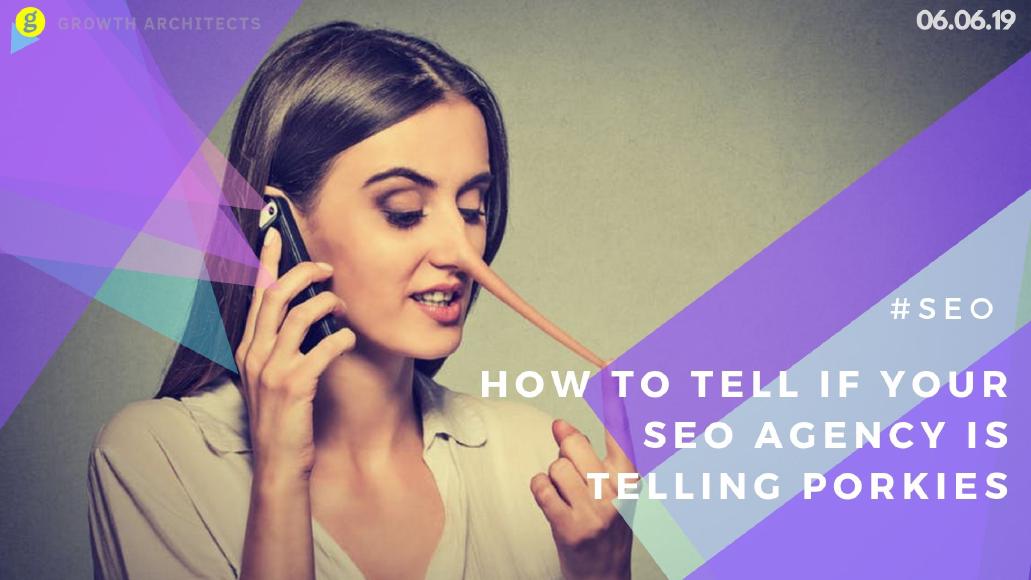The world of Search Engine Optimization (SEO) is a murky place to operate. We’ve seen websites appear first for unrelated search terms. We’ve seen gorgeous websites appear on the 100th page. We’ve spoken with specialists who have promised first page rankings and some which have promised a specific spot on the first page. There are some who promise the moon-on-a-stick through a mixture of secret sauce and the use of Private Blog Networks (PBN). With all of these promises, how can you tell which agencies are telling the truth and which are telling you what you want to hear?
Search Engine Optimization is, at its core, simple. It’s the means of serving up your content to search engines in an easily digestible way and ensuring the actual content serves a purpose, delivering value to your target audience.
The issue is that to get a higher rank for your website you need to understand what criteria Google’s algorithm uses for deciding the value of the content on your website and why it’s more valuable than someone else’s content. Now, where can you see Google’s algorithm? See the link below.
GOTCHA!
If only life was that simple. Google has invested billions of pounds into its search engine to ensure that it makes a programmatic decision clear of bias and that the results it presents to the world’s searchers is right for each one of them. A guy searching for wood nails, for example, is shown links for nails to be used for wood – rather than wooden nails. A lady searching for new tires is shown links for brand new tires rather than news about tires. It’s the algorithm which decides what the searcher is looking for and this is the best kept secret on the internet.
That’s not to say that it’s impossible to optimize your website to appear higher in the ranks – far from it. Google provides quite a wide range of material for you to learn what they expect to see when their bots visit your page to decide if it’s worth showing or not. It’s even established some best practices to help you design your website and its content to enable bots to better understand it’s value.
Beneath are just a few examples of Google documentation and they provide detailed guidelines over the meta tags, sitemaps and page layout it expects your website to follow.
SEO Starter Guide by Google https://support.google.com/webmasters/answer/7451184?hl=en
Get your website on Search Console by Google https://support.google.com/webmasters/answer/6332964?hl=en&ref_topic=4564315
Steps to a Google friendly website by Google https://support.google.com/webmasters/answer/40349?hl=en
Following the guides above will ensure your website is correctly consingle-imaged and setup so that when the Google algorithm does scan your website, it understands how to navigate it and how to rank it. You’ll notice that no-where in this documentation there are promises of first page glory, fast results or keyword manipulation through PBN’s.

Things to watch out for with SEO agencies.
1. You’ll see guaranteed results.
When businesses think about hiring an outside agency to help with SEO, usually their biggest concern is getting the most out of their investment. There may be some concern over avoiding penalties or may just be skeptical of the practical advantages of an SEO campaign.
In a desperate attempt to reassure potential customers, many agencies have resorted to promising results – sometimes these agencies will exaggerate the results (promising first page results or coming in above your competitors) and sometimes more casually you’ll hear them promise an increase in organic traffic over time. Unfortunately, it’s virtually impossible to predict results with this level of accuracy – especially as every client is unique, with unique goals, competitors, budgets and challenges. Positive results can come from running an SEO campaign, however it may not be the typical hockey-stick graph you’re expecting but with a methodical approach over a period of time, positive results can be generated.
2. There is only one road to success.
Some SEO agencies specialize in specific areas of SEO. There are some which focus on content marketing who write on-site blogs or a link building agency which is focused on building off-site links or backlinks.
SEO is a complex area to reduce to individual functions; instead think about SEO as a tangled web of influence driven from on-site optimization, on-site content, off-site content, link building and social media marketing. You don’t need to have a single agency that’s capable of providing all of these types of services in one package but you do want to focus on more than one area to generate the best results.
3. The same strategy will work for you and your competitors.
Package deals aren’t always a no-go – they can help new customers throughout the decision process and make accounting simpler on both ends. However, the majority of SEO campaigns require a heavy degree of customizability; as no two clients are the same. You’ll need different targeting, volumes and different adjustments over time if you want to truly get good results. If an agency claims to use the exact same approach for all of their clients, something is fishy.
4. More is better.
Newcomers and seasoned professionals alike learn to correlate individual pockets of effort, such as a blog post or an inbound link with measurable results. Then, to scale up they believe if they keep repeating the same tasks that more results will come in – more blog posts or more inbound links will instantly net you better results. This isn’t the case; prioritize quality over quantity. One knockout blog post is far better than 10 mediocre ones and the same holds true for inbound links.
5. Google can be exploited.
This is by far the most concerning issue. SEO is most often described in ways of the method of manipulating Google – giving you the edge. This doesn’t really translate all that well or accurately reflect what most modern search engine optimizers are doing. Experts aren’t looking for loopholes or tricks; doing so would simply bring attention to the loophole forcing Google to close it. It may introduce a quick win but it could seriously jeopardizes the health of your ranking. Instead, it’s better to identify the criteria that Google uses to evaluate the quality of a sale and try to build that criteria into our sites. Google can’t be directly exploited – at least not in the conventional sense.
6. You can’t do SEO by yourself; so don’t try.
This is sometimes true but depends on a few factors. You can definitely do SEO yourself, given enough time and resource. All of the information is out there (a great starting guide is further up in this article) so given time you can read up on the do’s and do-nots, researching and practicing to discover what can be achieve to improve the standing of your website on search engines. It does take time, there is a steep learning curve and to start off with you’ll get more wrong than you get right but eventually it will pay dividends. For these reasons, it may not be practical and it’s far easier to use experts to execute your SEO goals.
7. Search engine updates are responsible for our poor results.
Whilst it’s true that Google is always updating, optimizing and maintaining its search algorithm, and this may in-turn affect your rankings. It’s also true that these updates have (in recent years) been related to helping it’s crawlers better understanding the value of your websites content and rewarding those with high value. In fact, often announcements of major changes are published before they are introduced giving web masters an opportunity to resolve any potential issues ahead of time. If your agency has been using loopholes or tricks to game Google, you may see permanent reductions made to your websites ranking but typically, these updates can only help websites which follow the rules and offer great quality content to specific audiences. Simply put, don’t accept “search engine updates” as an excuse for lackluster results.
If you hear any of these exaggerations or outright lies, consider it a red flag. It doesn’t mean your agency is intentionally trying to deceive you, or even that it’s a bad agency – it may be just that you’re not getting the full story, your budget is too small or that the agencies sales team are under duress.


